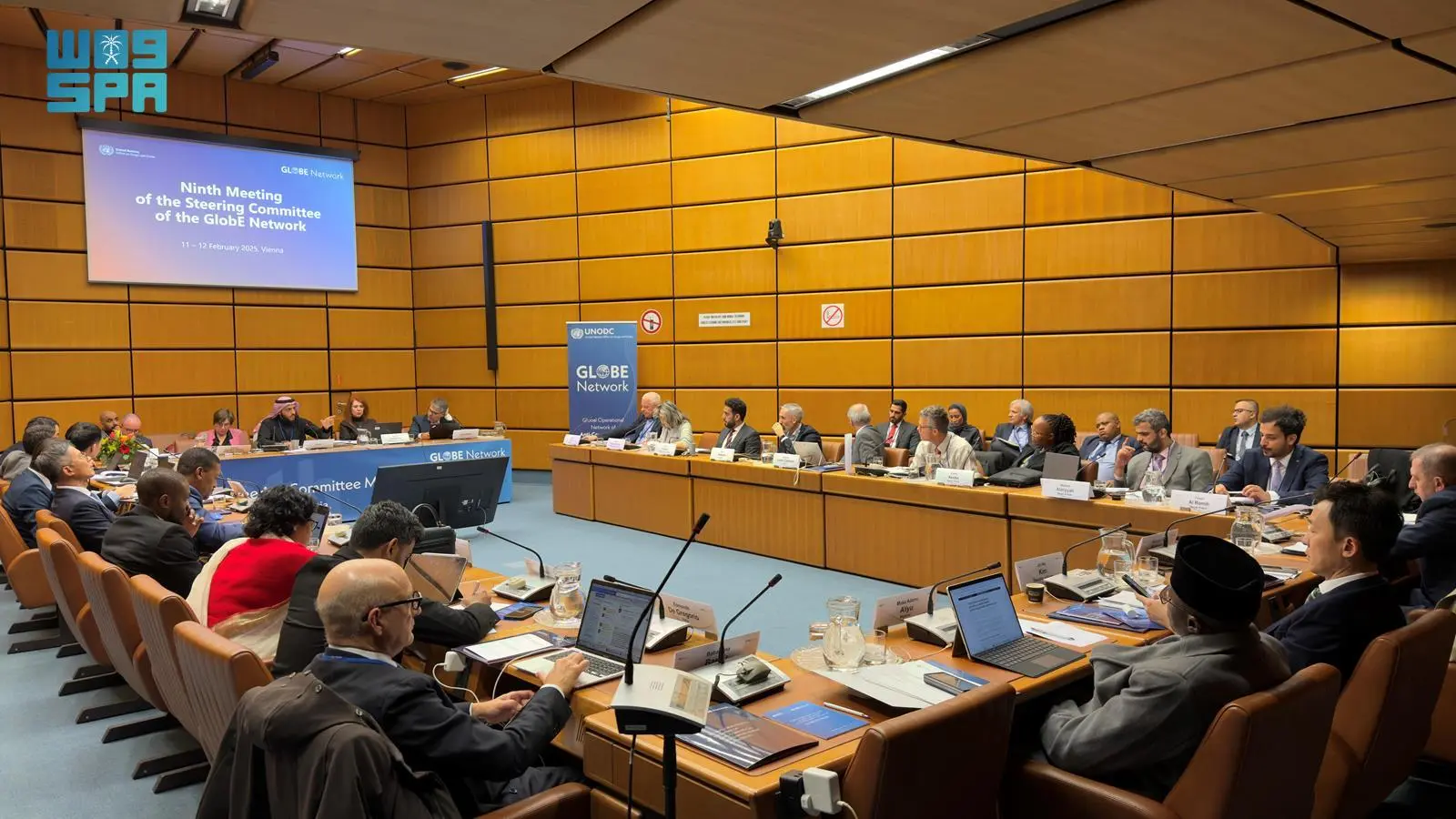Saudi Arabia recently assumed the Chairmanship of the Global Operational Network of Anti-Corruption Law Enforcement Authorities (GlobE Network), an initiative that includes 124 countries and is an extension of the kingdom’s anti-corruption efforts at home.
Established in 2021, the Global Operational Network of Anti-Corruption Law Enforcement Authorities (GlobE Network) comprises more than 229 law-enforcement agencies from over 124 countries, alongside numerous international organizations. Saudi Arabia was unanimously elected to be chair of GlobE Network’s steering committee for the 2025-27 term.
Saudi Arabia’s participation in the GlobE Network is spearheaded by its Oversight and Anti-Corruption Authority (Nazaha) which was formed in 2011. Saudi Arabia ratified the United Nations Convention against Corruption in 2013.
Although perhaps best known for the massive anti-corruption campaign launched by Saudi Arabia’s Crown Prince Muhammad Bin Salman in 2017 which detained more than 200 high-profile individuals on charges of money laundering, bribery and extortion as well as other crimes, the Nazaha-led anti-corruption effort continues and has made significant progress.
“Beyond “frying a few big fish,” the kingdom has been devoting extensive effort toward tackling petty corruption, as well. The country’s anti-bribery law, which was first enacted in 1992, was ratified in 2018 and extended later in 2021 to incorporate both the private and non-governmental sectors. Nazaha has ramped up its operations, clamping down on publicservants. Currently, Saudi civil servants face the highest risk of prosecution for corruption related crimes within the Middle East. According to our recent analysis drawing on data from national anticorruption agencies, the annual risk of a Saudi civil servant being sanctioned or prosecuted for corruption is approximately one in 658—a figure that compares favorably with Hong Kong (1:845) and Singapore (1:1,000). KSA ranks well ahead of other MENA countries on this metric, such as Jordan, where the risks are one in 1,251; Palestine (1:4,839); and Kuwait (1:66,267).”
In 2024, Saudi Arabia’s Council of Ministers enacted a stringent new law that came into effect in November 2024 that details procedures for prosecuting government employees who accumulate wealth that is “inconsistent” with their reported income. It is notable because it stipulates that if a public official gains wealth they can’t explain, the burden of proof falls on the employee to demonstrate the assets’ legitimacy.
Benjamin D. Jones and Florence Jerome-Ball comment in The National Law Review that:
“This marks a significant departure from standard prosecution practices, and a potentially novel way around a prevailing challenge in holding corruption perpetrators to account. Convictions in corruption cases often stumble when prosecutors struggle to establish intent, or to discredit sham arrangements concocted to disguise illicit benefits. By reversing the burden of proof and requiring officials to prove the legitimacy of their funds, Nazaha could overcome these issues and increase their chances of success.”
In 2024 Nazaha arrested 1,708 people on corruption charges. Notably, Saudi Arabia has incrementally improved it’s score on the World Bank’s Worldwide Governance Indicator and Transparency International’s Corruption Perceptions Index, both of which are views as remarkably “sticky” in its rankings. Meaning it is difficult improve a country’s ranking.
Yet on Transparency International’s Corruption Perceptions Index, Saudi Arabia has risen from 49 in 2018 to 59 in 2024. The Middle East and North Africa region average on this index is 33. The global average is 43. Zero is considered highly corrupt, the lowest score possible.
Moreover, Gavin Gibbon and Megha Merani, writing for Arabian Gulf Business Insight comment that, “per polling data by the Arab Opinion Index, the percentage of Saudi respondents who believe financial and administrative corruption is widespread in the country to a large/medium extent has dropped from 60 percent in 2016 to 23 percent in 2021-2022.”
Oumeyma Chelbi and Robert P. Beschel Jr. conclude that: “Global experience indicates that the most effective national anticorruption efforts have been grounded upon steady progress over time. The Saudi effort may have begun in earnest with a splashy and high-profile set of arrests and asset confiscation, but the kingdom has continued to steadily press forward along multiple fronts. Its efforts appear to be bearing fruit, and at some point may serve as an example for other countries in the region.”









